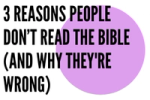Fighting slavery in the 21st century
Sam Hailes
Time magazine noted last year, "there are more slaves today than at any point in human history". It's a statistic that has propelled many Christian groups into fighting against both slavery and human trafficking in the 21st Century. But the relationship between Christianity and slavery is a long and mixed one. While Wilberforce's abolitionist campaign in the 1800s is well known, other events in history tell a darker tale.

Slavery
by Connor Tarter
An embarrasing history?
Historically, Christians have not only participated in, but advocated for the slave trade.
James Ewins from International Justice Mission (IJM), an organization helping to prosecute perpetrators of abuse, says: “If we look back to the slave trade going on in the West Indies there were slaves that had the brand of the Church of England on them."
"The Church of England in fact owned slaves, as we look around the UK there’s basic wealth on which this nation was founded that was derived from slavery.”
Church figures as varied as St Augustine and John Calvin never denounced slavery as a moral evil. Furthermore, some have suggested it was these famous figures readings of scripture that helped provide justification for slavery.
It’s an issue that modern day scholars have been open and honest about. American academic Jennifer Glancy, who has written extensively on the issue, says: “I wish in some straightforward way Paul had simply said 'you know guys? Slave holding is wrong', but he did not.”
“We don’t have that kind of clarity. It’s a more vexed issue than that. That’s not what I want to say, but that’s my opinion,” she says honestly.
Writing as a historian working with difficult material and a Christian who wants to see the end of slavery, Jennifer says admits there is a “tension” in her work.
Aware there is a cultural background to the scriptures that some find difficult to grasp, the writer explains how the Bible writers would have viewed the issue.
“If you go back to the 10 commandments, slavery is recognized within those…We accept certain structures of the world around us so we have to remember Paul came into a world where slave holding was just considered a fact of life like the sky is blue.
“I wish in some straightforward way Paul had simply said 'you know guys? Slave holding is wrong', but he did not.”
“At the same time, there are places in Paul where we already see some hint of tension in that position. Galatians 3:28 is one of those places, 'there is neither slave nor free'.”
“Paul seems to on the one hand accept slavery as a fact of life within his society, on the other hand he seems to suggest some transcendence of that ideal and it’s very hard to say whether that ideal ever made any difference in actual practice.”
Isn’t what the Bible says about slavery embarrassing? Shouldn’t Christians just keep quiet about these difficult passages?
“History has shown that Christians are able to keep quiet about it, but they ought not to. However we read scripture we have to take responsibility for our own interpretations. You could read certain portion of the Hebrew bible as favouring genocide, but we don’t. We choose not to do that, we look within the riches of scripture for other points of contrast to that.”
Moving toward a Biblical understanding

Jennifer Glancy
Author of Slavery in Early Christianity
But what does scripture really say about slavery? According to the authors of Hard Sayings of the Bible, Old Testament slavery did not “have anything like the connotations it grew to have during the days of those who traded human life as if it were a mere commodity for sale…in all cases the institution was closely watched and divine judgment was declared by the prophets and others for all abuses they spotted”.
While such an analysis may help, Jennifer still finds it “really disturbing” that the Bible appears to condone the practice. Nevertheless, she is keen to apply biblical teaching for today.
“If we are going to ask what is the gospel telling us today and what is the good news of Jesus message I would always go back to Jesus statement that the members of the Christian community need to be slaves to one another.”
“That’s a very challenging statement, I think it’s a painful statement especially for those who have been enslaved or oppressed in ways I have not been oppressed. What it’s saying is among the Christian community we need to live as if there are no masters.”
Another Christian who is looking at this complicated issue is Anne Read. Anne is the second person to hold the position of ‘anti human trafficking response coordinator’ at the Salvation Army.
Anne is pleased there is a “growing awareness” about the issue and that Christians are campaigning against trafficking. But how does she view scripture?
“There’s lots of passages in scripture that speak about freedom and that freedom is one of the gifts that God gives to mankind. If being a slave means you’re not free then we can safely say it’s outside of the will of God.”
“Where slaves are exploited, used and abused which is usually the case, then we’ve got to say that’s not God’s heart. We are of immense value to him, that’s how God sees the individual so that’s how we need to see individuals too.”
"If being a slave means you’re not free then we can safely say it’s outside of the will of God.”
James from IJM makes a similar point. “Jesus wasn’t seeking at that point to revolutionize the world by abolishing slavery,” he says.
“Jesus was seeking to turn the world upside down from the inside out so saying to people we live in a world in which slavery exists but this is how you treat your slaves.”
“It’s very much a bottom up revolution, not by overturning political institutions but by making a change in people’s hearts and the natural consequence of that 2000 years later is those institutions have been turned upside down and we have come to recognize that slavery is wrong."
Motivated by faith
Anne believes that Wilberforce’s primary motivation in ending slavery was his faith, but says that today greater collaboration is needed if both slavery and human trafficking is to be stopped.
“We’re working with a number of sub-contractors, some of whom are Christian organisations, others who are secular. I would say basic human rights demand that we respond to this injustice.”

James Ewins
IJM Advocate
“I would want to emphasise we need to work together, we need to work with all of those partners who are committed to this issue. Nobody can achieve this on their own.”
James agrees and is hopeful that more Christians will dedicate their lives to fighting the issue. “We do need people like Wilberforce, we need people who are prepared not simply to dig in their pocket, which is important, not simply to pray, which is even more important but to say I’m going to give my life to this issue, I’m going to dedicate every breath that I have, every hour I have to all the various ways in which we need to address it.”
There’s a question both Jennifer and Anne have been asking themselves. “If slavery was acceptable to Christians previously, what are the practices that are acceptable to us now that we might look back on in years to come and say why did we ever think that was acceptable?” Anne asks.
“That question really haunts me,” Jennifer says, “because it’s not something where I’m delivering a historical verdict but I have to decide now what to do with my time and my treasure, how to invest my energy, what systems do I participate in?
UK residents have been shocked in recent months as the media have reported on the high level of human trafficking taking place in local towns and cities.
“It is everywhere”, James says. “It’s very alarming. There are brothels, construction sites, marijuana growing factories where people are enslaved in what they’re doing.”
“Are we shocked? Yes we are. Should we be shocked? No because the simple fact is there is slavery in every country of the world although in every country in the world that has a legal system, slavery is illegal.”
Will slavery ever be totally abolished? James believes it is possible, and we have a duty to make it "extremely difficult" for anyone to be enslaved. It's a mission that the Salvation Army and IJM are also committed to. And with greater collaboration than ever before perhaps it won't be long before the abolition of slavery is not just a political concept, but an on the ground reality.
Latest Blogs

Spiritual Growth
LENT COURSES - How to choose the right one for you
Long overshadowed by the celebrations of Easter Sunday, Lent is being rediscovered as a sacred time of reflection and renewal in its own right and a time of preparation for the joyous seasonal finale.

Featured
Stocking Fillers
Here’s our pick of the top 3 Stocking Fillers this Christmas. You can find even more at our Christmas Store.

News
Where to Watch the New C.S. Lewis Film
Heading to a screen near you soon, The Most Reluctant Convert is a feature-length movie about the life and faith of one of England’s greatest Christian writers and thinkers: C.S. Lewis.

News
Advent Study Guide Review 2021
Go deeper with this year's brilliant Advent Bible Study Guides.

Interview
Author Interview with Feby Chan and Naomi Reed
Feby tells her compelling story in her book Walking Him Home. After wrestling with grief and suffering, she shares how God’s healing and faithfulness is enabling her to step into her new life and ministry.

Featured
3 Reasons People Don’t Read the Bible
We are currently in a strange situation. Bible sales are up, but the number of people reading the Bible is going down. Even stranger, this situation is nothing new. There has always been a difference between the number of people who own a Bible and the number of people who regularly read their Bibles.
